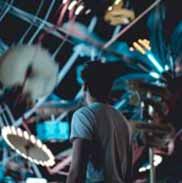Scientific Method Vocab
Unlock all answers in this set
Unlock answersquestion
scientific method
answer
A process used by scientists to find answers to questions and solve problems. Usually has only one variable testing to see if it makes a difference.
question
observation
answer
Asking a question or identifying a problem relies on making observations about the world around you. An observation is any use of the senses (smell, touch, taste, hearing, seeing) to gather information. Example: The plant is 10cm tall, has 25 leaves, is dark green, and has a mass of 15g.
question
research
answer
Science topics that might help answer your question. Experiments that have already been done that are similar to your experiment. Research is to learn more about your topic to create a knowledgeable hypothesis.
question
hypothesis
answer
A hypothesis is a possible explanation or answer to a question or problem. It must be testable. Can show cause and effect. It must include an if/then statement. Predictions can be made based on hypothesis. Example: If a plant is exposed to excessive sunlight, then it will die.
question
quantitive data
answer
Data that is based on numbers you can measure or count. Example: Plant A grew to 10cm, and Plant B grew to 7cm at the end of 3 weeks.
question
qualitive data
answer
Data that is based on observations of qualities. Example: Plant A is dark green in color and thick, and Plant B is light green in color and thin.
question
inependent variable
answer
The one part of the experiment that you change at the beginning of an experiment. This is the one thing that you change to see if it makes a difference when compared to the norm.
question
dependent variable
answer
The measurement taken in the end to see if the independent variable made a difference when compared to the control group. The part of the experiment that changes in the end. What we can measure at the end to see if there is a change. The dependent variable \"depends\" on the independent variable. Example: A student wanted to test how the mass of a paper airplane affected the distance it would fly. Paper clips were added before each test flight. As each paper clip was added, the plane was tested to determine how far it would fly.
question
experimental group
answer
The group that receives the independent variable. Example: A student wanted to test how the mass of a paper airplane affected the distance it would fly. Paper clips were added before each test flight. As each paper clip was added, the plane was tested to determine how far it would fly.
question
control group
answer
he group that does not change from normal conditions, and does NOT receive the independent variable. Example: A student wanted to test how the mass of a paper airplane affected the distance it would fly. Paper clips were added before each test flight. As each paper clip was added, the plane was tested to determine how far it would fly. Control Group: Normal paper airplane with no paper clips.
question
controlled variable
answer
all parts of an experiment that stay the same between the groups. The independent variable is the only \"difference\" made between the groups, all other parts of the experiment must stay the same with all test groups to be sure that no other variables determine the outcome.
question
materials list
answer
Complete lists of all objects used during an experiment. It must include the specific sizes and types of each object, and the amounts of each type of object. Everything must be measured.
question
procedure
answer
A step by step list of EVERYTHING scientists must do during an experiment. It must include: How to measure the independent variable, How to measure the dependent variable, and How to change the independent variable
question
graphs
answer
Scientists use data tables and graphs to help them analyze the result of their experiment. This usually involves doing math with the numbers. X-axis is used for the independent variable, Y-axis is used for the dependent variable Examples: finding the mean, median, or mode, subtracting, multiplying.
question
conclusion
answer
Scientists state whether they \"accept\" or \"reject\" their hypotheses at the end of an experiment when drawing conclusions.



